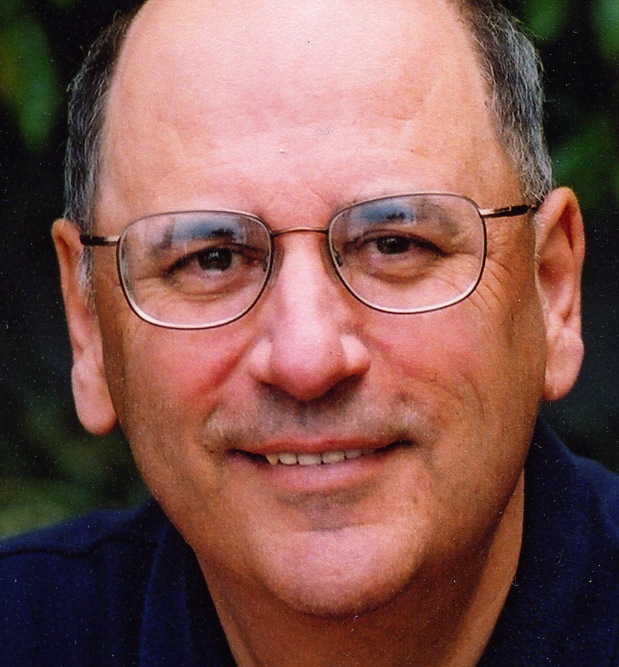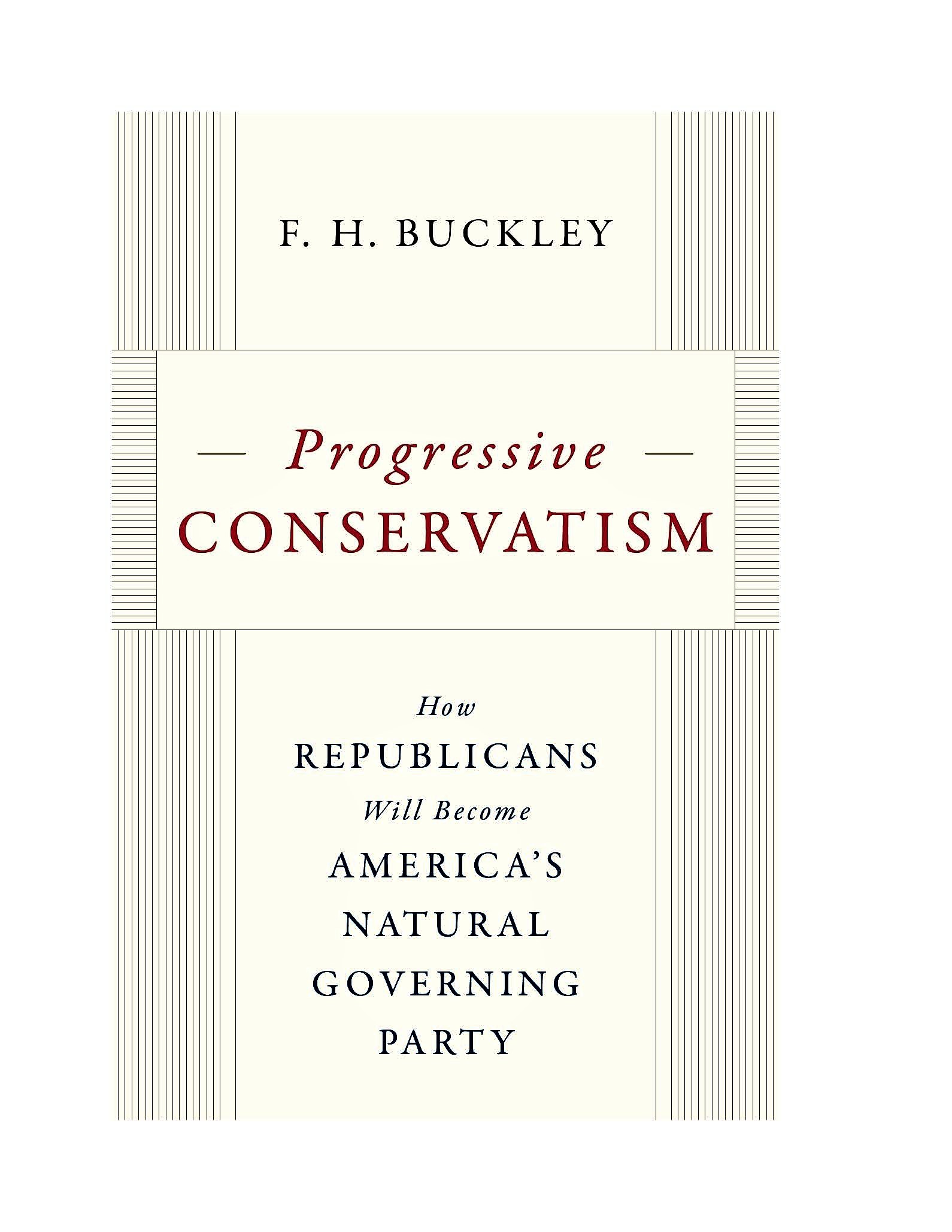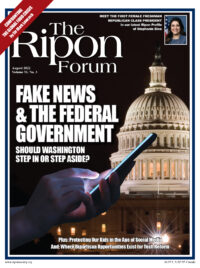
With polls showing that Republicans stand a good chance of recapturing control of the U.S. House and possibly the Senate in the November election, many Americans are asking what the party will do if it holds the reins of power next year.
In the House, Republicans are attempting to provide an answer to that question by rolling out a series of proposals — which they are calling their “Commitment to America” — aimed at addressing high energy prices, rising violence, and some of the other key challenges Americans face.
In the Senate, Republicans appear to be of two minds about which is the proper course to take. Some, such as Minority Leader Mitch McConnell, believe the focus of the upcoming election should be on what Democrats have done — or failed to do — over the past two years. Others, such as Florida Senator Rick Scott, believe the party need to follow the House’s lead and put down in writing what they hope to achieve if they hold the majority next year.
Frank Buckley is taking an even broader view. Buckley is a professor at George Mason University’s Scalia School of Law who is perhaps better known in Republican circles as the author of several speeches Donald Trump delivered during the 2016 presidential campaign. Buckley is no longer a supporter of the former President — he calls him “toxic.” But he is a supporter of some of the positions that Trump took and some of the messages that he conveyed.
Buckley believes it is time for Republicans to move beyond the former President and get behind a vision that not only encapsulates some of these positions and messages, but appeals to the broad swath of working class Americans who supported Trump in response. Buckley lays out just such a vision in a new book. Called Progressive Conservatism: How Republicans Will Become America’s Natural Governing Party, the book recommends that members of the GOP look to three “leading statesmen” from the GOP’s past for guidance about the path to follow, and argues that issues relating to improving economic mobility, fighting corruption, and making government work will be keys to the party’s success in the years ahead.
The Forum spoke with Buckley recently about his book, his vision for progressive conservatism, and where he would like to see the party go in 2022 and beyond.
________________________________
RF: First things first — explain to our readers, what is a progressive conservative?
FB: A progressive conservative is someone who is faithful to the leading statesmen of the Republican Party — Eisenhower, Theodore Roosevelt, Lincoln. There are several themes that are associated with those statesmen.

Lincoln was the one who invented the American Dream — the idea that whoever you are, wherever you come from, you should be able to get ahead and your kids will have it better than you did. When polled in 2014, Americans said, ‘We no longer believe in the American Dream. We don’t think it’s happening.’ And the economic evidence bears them out. That should have been a sign of a revolution in American politics. But the only person who picked up on that was Trump, and they elected him president.
So I think the Republican Party has to take on mobility — economic intergenerational mobility — as a big theme, and specifically point out how it’s the Democrats who are holding people back with their immigration policies and their education policies and their regulatory policies. They have placed a boulder in front of the people who want to get ahead. So that should be an important element of what progressive conservatism means. And it all goes back to Lincoln.
Teddy Roosevelt came to government as a reformer — an anti-corruption reformer. And, you know, the GOP has given away the issue of corruption to Democrats. And that’s just wrong. There are things we should be doing. We should be taking up the issue of corruption, specifically with respect to regulating lobbyist contributions to politicians and closing the revolving door between K Street and Congress. Those should be Republican themes.
A progressive conservative is someone who is faithful to the leading statesmen of the Republican Party — Eisenhower, Theodore Roosevelt, Lincoln.
And then finally, like Ike, we have to make our peace with the welfare state and recognize, as Lincoln did, that we want equality of opportunity, not equality of results. And the government has a role to play in achieving this goal. The government has a role in providing good, decent school choice, for example. We’re on the right side of that. These are all themes that define progressive conservatism.
RF: Let’s talk about the progressive conservative vision on some of the challenges facing America today. You mentioned school choice. To expand on that, where do progressive conservatives come down on the issue of education?
FB: Well, we’re in favor of good education. The guy who really was an education president was Lincoln, who supported the land grant colleges through the Morrill Act, and who was not merely in favor of the equality of opportunity, but who lived it himself, rising from a hardscrabble farm to the presidency. What was really basic to Lincoln was the idea that all Americans — both white and black — should have the opportunity to get ahead. And a good part of that is education. Lincoln is the only president to hold a patent, and loved the idea of education for farmers as a means by which everybody can get ahead.

RF: We’re in the middle of a heat wave right now. What about climate change?
FB: Climate change is an issue on which I think one is permitted to be skeptical. I’ve read what Bjorn Lomborg has had to say in the Wall Street Journal. I agree there’s such a thing as global warming. I’m something of a skeptic as to the subject of spending a vast amount of money to try to cure the problem. At this particular point, you ask what’s to be done today. Well, the big issue today is inflation. So big government spending programs right now aren’t going to be the answer.
RF: What about defense and foreign policy. What is the progressive conservative view towards Ukraine and the importance of American leadership abroad?
FB: You know, if there was a pro-Russian fellow in the Trump campaign, that would’ve been me. I helped draft Trump’s foreign policy speech in the beginning of the campaign, I put in a line to the effect that I could see why the Russians were troubled by the expansion of NATO. That line was taken out. And what was substituted was a line that said, “They say we can’t trust the Russians to cut a deal. I intend to find out.” That’s what Trump said. I think that’s, that’s what we should have done.
I think we have to break away from that idea of dividing us up by race or gender or whatever — leave that job for the Democrats. Instead, ask for people to speak to that which is for the common good of all Americans.
The tragedy of the idiotic Russian collusion paranoia was it prevented anything like a deal with the Russians. And clearly, a deal was the way to solve the problem. Even now in Ukraine, even at this moment, we should be getting on the blower with Putin — as Macron does, as the Pope does — and try to craft a deal. I mean, you do peace deals with your enemies, not with your friends. Putin’s very much an adversary who we threw into the lap of the Chinese, which is madness.
I don’t think we should be spending money fighting a proxy war which gets Ukrainians killed. I think what we should be trying to do is craft a peace treaty that would solve the problem. Indeed, the opportunity for such a deal even now I think exists with Putin. That also, by the way, is what Henry Kissinger thinks.
RF: Picking up on your earlier point about corruption, you dedicate an entire chapter in your book to draining the swamp, First, what is your definition of the swamp? Is it entrenched bureaucrats, entrenched special interests, or both? And how do you propose to go about doing it?
FB: Well, I have some specific suggestions geared towards reining in the lobbyists and closing the revolving door between K Street and Congress. It’s been said that Congress is a farm team for K street, right? People come here and they never leave — they just move down to K Street. Those are the kinds of issues that I think Republicans should take on.
RF: You write about the importance of having a government that is “aligned to the whole of the voters” and say “Republican Virtue” will be required to reach that goal. Could you talk about that for a moment?
FB: The idea of Republican Virtue is traced back to the Founders in 1776. They thought that the revolution wouldn’t succeed unless it was supported by Americans who had a disinterested desire to promote the common good of Americans. Republican Virtue is also something I identify with the West. I’m from the West. And so I buy into Frederick Jackson Turner’s story of the frontier as being crucial in American history and, and history as being a contest between the West — which is democratic, egalitarian, mobile, and virtuous, as opposed to an aristocratic and corrupt East. So Republican Virtue thus means that what is for the common good of all Americans let us support that.
The cynical view, which I associate with Madison, is that we’re also intrinsically corrupt and we can’t be trusted to promote Republican Virtue. We’re disinterested in virtue in any way, and the best we can do is just have people bargain with one another. That’s called pluralism, and it’s an idea that traditionally was associated with the Democratic Party — a party of coalitions. The notion is that everybody is bargaining at the table. Everybody will be well taken care of. And that obviously didn’t happen.
What we’ll need is a party that recognizes the limitation of 60 years of libertarianism and of a being party that was indifferent to issues like mobility and corruption.
I think we have to break away from that idea of dividing us up by race or gender or whatever — leave that job for the Democrats. Instead, ask for people to speak to that which is for the common good of all Americans. And that historically has been what the Republicans have done as opposed to the Democrats.
RF: Let’s return to progressive conservatism and the politics of today. You wrote speeches for Donald Trump in 2016, yet write that you believe Republicans need to move beyond Trump in 2024. Why do you no longer support him? And what kind of candidate do you believe the party needs to get behind the next time around?
FB: Well, I think he’s toxic for any number of reasons. January 6th, obviously, but even before that, he was a failed President by virtue of his inability to know which levers to pull when he was in office. He didn’t have a sense as to the kinds of people who should be appointed. He surrounded himself with the most knavish of people. I hope that the January 6th hearings persuade the American people that the fellow should be toast. If they do that, what they’ll have done in the end is help the GOP more than the Democrats.
So yes, we have to say goodbye to Trump. But I think what we want to do at the same time is remember that this guy won in 2016, and he brought to the party a whole bunch of people who had never voted Republican before. And we’re not going to win an election if we say goodbye to them. If we revert to the old right wing party of Barry Goldwater, that’s not going to work.
What we’ll need is a party that recognizes the limitation of 60 years of libertarianism and of being a party that was indifferent to issues like mobility and corruption.
RF: I think the term you used in your book is that Republicans need a “happy warrior” in 2024…
FB: Which is to say I rather like Ike. We need a smiling person who doesn’t communicate a sense of hostility. And that’s certainly not Trump. It’s more like Ike.




